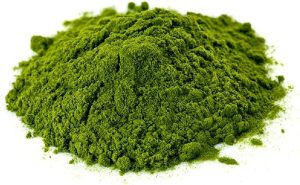
- Overview of Lutein
- Brief History of Lutein
- Functions of Lutein
- Recommended Daily Intake (RDI), Recommended Dietary Allowance (RDA), Adequate Intake (AI), or Reference Nutrient Intake (RNI) for Lutein
- Deficiency of Lutein
- Food Sources of Lutein and Where to Get It From
- Lutein and Its Interaction with Other Medications
- Websites and Articles to Delve into the Benefits of Lutein
- Disclaimer
Overview of Lutein
Lutein is a naturally occurring carotenoid, belonging to the xanthophylls group, widely recognized for its beneficial impact on eye health. Found in high concentrations in the retina, particularly in the macula, lutein acts as an antioxidant that helps protect the eyes from harmful high-energy light waves like ultraviolet rays.
As a component of the macular pigment, it supports visual acuity and contrast sensitivity while reducing the risk of age-related macular degeneration (AMD) and cataracts. Lutein is abundant in green leafy vegetables, such as spinach and kale, as well as in egg yolks.
Given its role in maintaining eye function, lutein is often recommended through dietary sources or supplements to promote optimal ocular health.
Brief History of Lutein
Lutein, a naturally occurring carotenoid, has a rich history intertwined with scientific discovery and research on nutrition and health. The exploration of carotenoids began in the early 19th century when scientists identified and characterized various compounds responsible for the vibrant colors in fruits and vegetables. However, lutein specifically gained prominence in the latter half of the 20th century.
In the mid-20th century, researchers delved into the role of lutein in eye health, particularly its concentration in the macula, a critical part of the retina. The macular pigment, consisting of lutein and zeaxanthin, was identified for its protective function against age-related macular degeneration (AMD) and other eye disorders.
As nutritional science advanced, lutein’s presence in green leafy vegetables, such as spinach and kale, and its link to improved visual acuity became more evident. The late 20th and early 21st centuries witnessed increased awareness of lutein’s significance in promoting eye health and its integration into dietary recommendations and supplements. Ongoing research continues to explore lutein’s broader health benefits beyond vision.
| Year | Milestone |
|---|---|
| Early 19th Century | Identification of carotenoids as colorful compounds in plants. |
| Mid-20th Century | Focus on lutein’s presence in the macula and retina. |
| 1970s | Increasing recognition of lutein’s role in eye health. |
| 1980s | Exploration of the macular pigment and its protective function. |
| 1990s | Link established between lutein and reduced risk of AMD. |
| Late 20th Century | Identification of lutein-rich foods like spinach and kale. |
| Early 21st Century | Integration of lutein into dietary recommendations and supplements. Ongoing research explores broader health benefits. |
Functions of Lutein
Lutein, a carotenoid with antioxidant properties, plays several crucial roles in supporting health, particularly in relation to eye health and overall well-being. Here are some of the key functions of lutein:
- Eye Health:
- Macular Pigment: Lutein, along with zeaxanthin, forms the macular pigment in the eyes. This pigment helps protect the retina from harmful high-energy light waves, such as ultraviolet rays.
- Protection Against AMD: Lutein is associated with a reduced risk of age-related macular degeneration (AMD), a common eye condition that can lead to vision loss.
- Visual Function:
- Visual Acuity: Lutein is linked to improved visual acuity, enhancing the sharpness and clarity of vision.
- Contrast Sensitivity: Lutein contributes to contrast sensitivity, allowing individuals to discern objects more clearly against a background.
- Antioxidant Activity:
- Neutralizing Free Radicals: Lutein acts as an antioxidant, neutralizing free radicals that can cause cellular damage. This antioxidant property extends beyond the eyes, potentially benefiting overall health.
- Skin Health:
- UV Protection: Lutein may contribute to skin health by providing protection against the harmful effects of ultraviolet (UV) radiation. This protection helps combat oxidative stress and supports skin integrity.
- Cognitive Function:
- Brain Health: Some research suggests a potential link between lutein intake and cognitive function, particularly in the aging population. Lutein’s antioxidant properties may play a role in supporting brain health.
- Heart Health:
- Cardiovascular Benefits: While research is ongoing, lutein may contribute to cardiovascular health by reducing oxidative stress and inflammation.
- Cancer Prevention:
- Anticancer Properties: Preliminary studies suggest that lutein may have potential anticancer properties, though more research is needed to establish clear associations.
It’s important to note that while lutein is not considered an essential nutrient, ensuring an adequate intake through a balanced diet or supplements may contribute to overall health, particularly in the areas of eye health and antioxidant protection. As with any nutritional component, individual needs may vary, and consulting with healthcare professionals is advisable.
Recommended Daily Intake (RDI), Recommended Dietary Allowance (RDA), Adequate Intake (AI), or Reference Nutrient Intake (RNI) for Lutein
As of 2023, Recommended Dietary Allowance (RDA) or Recommended Daily Intake (RDI) specifically for lutein have yet to be established. Generally, lutein is not classified as an essential nutrient with a specific daily requirement. However, it is recognized for its potential health benefits, particularly for eye health.
Instead of an RDA, some nutrients are assigned an Adequate Intake (AI), which is an estimate set when there is not enough evidence to establish an RDA. However, lutein does not currently have an AI either.
The intake of lutein is generally recommended based on observational studies and its association with eye health. The American Optometric Association suggests a daily intake of 10 mg of lutein, along with 2 mg of zeaxanthin, for eye health benefits. However, these recommendations are not universally adopted as official dietary guidelines.
It’s essential to obtain lutein through a varied and balanced diet rich in green leafy vegetables (such as kale and spinach) and other lutein-containing foods. If considering lutein supplements, it’s advisable to consult with a healthcare professional for personalized guidance based on individual health conditions. Please check with more recent and specific sources for any updates on lutein recommendations.
Deficiency of Lutein
information on deficiency condition specifically attributed to lutein is not available. Lutein is not classified as an essential nutrient, and the body does not have a recognized deficiency state for this compound.
However, lutein is known for its potential health benefits, particularly in supporting eye health and providing antioxidant protection. While there’s no specific deficiency condition, inadequate intake of lutein and other carotenoids may contribute to a suboptimal level of these compounds in the body, potentially affecting eye health over the long term.
To ensure sufficient lutein intake, it’s recommended to consume a balanced and varied diet rich in lutein-containing foods, such as green leafy vegetables (kale, spinach), broccoli, and eggs. Additionally, some individuals may choose to take lutein supplements, especially if they have specific health concerns or conditions.
If you have questions about lutein or concerns about your dietary intake, it’s advisable to consult with a healthcare professional or a registered dietitian for personalized advice based on your individual health status and dietary habits.
Food Sources of Lutein and Where to Get It From
Lutein is found in various foods, particularly in green leafy vegetables and certain fruits. Including these sources in your diet can contribute to lutein intake. Here are some common food sources of lutein:
- Leafy Green Vegetables:
- Kale is one of the richest sources of lutein.
- Spinach is another leafy green with a significant amount of lutein.
- Collard Greens are also lutein-rich.
- Broccoli:
- Broccoli contains lutein and is a versatile vegetable to include in meals.
- Zucchini:
- Zucchini and other types of squash contain moderate amounts of lutein.
- Brussels
- Sprouts: Brussels sprouts contribute to lutein intake and offer various health benefits.
- Peas:
- Green peas contain lutein and can be included in salads, soups, or side dishes.
- Corn:
- Corn is another vegetable that contains lutein.
- Eggs:
- Lutein is present in the yolks of eggs. Including eggs in your diet can contribute to lutein intake.
- Orange and Yellow Fruits:
- Fruits like oranges and mangoes contain small amounts of lutein.
- Paprika:
- Paprika, a spice made from dried peppers, is a source of lutein.
- Nuts and Seeds:
- Pistachios and sunflower seeds contain lutein.
When aiming to increase lutein intake, consider incorporating these foods into your meals regularly. Cooking methods, such as steaming or sautéing with a small amount of oil, can help enhance the absorption of lutein. Additionally, a diet rich in a variety of colorful fruits and vegetables provides a range of beneficial compounds for overall health.
If you have specific dietary concerns or health conditions, it’s advisable to consult with a healthcare professional or a registered dietitian for personalized guidance.
Lutein and Its Interaction with Other Medications
Lutein, a carotenoid with antioxidant properties commonly found in green leafy vegetables, is generally considered safe when obtained from dietary sources. However, there is limited information available regarding specific interactions between lutein and medications.
As a precaution, it’s always advisable to consult with a healthcare professional, such as a doctor or pharmacist, if you have concerns about potential interactions between lutein and any medications you may be taking. This is particularly important for individuals with underlying health conditions or those taking medications that may be affected by dietary supplements.
Some general considerations include:
- Anticoagulant Medications:
- Lutein, as an antioxidant, may have mild antiplatelet activity. While this is generally not a concern for most people, those taking anticoagulant medications (blood thinners) should consult with their healthcare provider to ensure there are no interactions that could affect blood clotting.
- Medications with Fat Absorption Issues:
- Lutein is a fat-soluble compound. If you are taking medications that interfere with fat absorption, such as certain weight-loss medications or bile acid sequestrants, it may affect the absorption of fat-soluble compounds like lutein.
- Supplements and Combinations:
- If you are taking lutein supplements, be cautious about the potential for interactions with other supplements or medications. Always inform your healthcare provider about all supplements you are taking to avoid any unexpected interactions.
- Individual Variations:
- Individual responses to supplements can vary. Some people may be more sensitive to certain compounds. If you experience any unusual symptoms or side effects after starting lutein supplements, it’s crucial to seek advice from a healthcare professional.
While lutein from food sources is generally considered safe, moderation and balance are key when incorporating dietary supplements. A well-rounded and varied diet that includes a diversity of nutrients from whole foods is often the best approach for overall health. Before making any significant changes to your diet or supplement regimen, it’s recommended to discuss your specific situation with a healthcare professional who can provide personalized advice based on your health status and medications.
Websites and Articles to Delve into the Benefits of Lutein
To delve into the benefits of lutein, you may find valuable information on reputable websites and articles related to nutrition, eye health, and scientific research. Here are some reliable sources where you can explore the benefits of lutein:
- National Institutes of Health (NIH) – Office of Dietary Supplements:
- Website: NIH ODS – Lutein
- This page provides a comprehensive overview of lutein, its functions, dietary sources, and potential health benefits.
- American Optometric Association (AOA):
- Website: AOA – Lutein and Zeaxanthin
- The AOA offers information on lutein and zeaxanthin specifically in relation to eye health.
- Academy of Nutrition and Dietetics:
- Website: Eat Right – Lutein and Zeaxanthin
- This source discusses how lutein and zeaxanthin contribute to eye health and offers dietary recommendations.
- Mayo Clinic:
- Website: Mayo Clinic – Lutein
- Mayo Clinic provides a concise overview of lutein, including its uses, potential benefits, and safety considerations.
- PubMed – National Library of Medicine:
- Website: PubMed – Lutein
- Explore scientific articles and research studies on lutein by using PubMed, a database maintained by the National Library of Medicine.
- All About Vision:
- Website: All About Vision – Lutein and Zeaxanthin: Eye and Vision Benefits
- All About Vision provides consumer-friendly information on lutein and its benefits for eye health.
Remember to critically evaluate the information you find and prefer sources that are based on scientific evidence. If you have specific health concerns or conditions, it’s always a good idea to consult with a healthcare professional or a registered dietitian for personalized advice.
Disclaimer
The information is solely provided for educational purposes. It is not intended to diagnose, treat, cure, or prevent any disease. Seek the advice of your physician or qualified healthcare provider with any questions you may have regarding a medical condition at all times. Never disregard professional medical advice because of something you have read or learned from this article.






